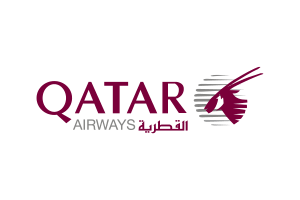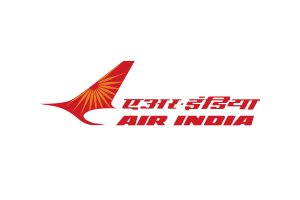Pilgrims who have performed Hajj in the past five years will not be granted a visa, although certain exemptions may apply, such as for those accompanying disabled pilgrims.
Before traveling for Hajj, you should carefully consider the information and advice on the website of the Saudi Arabian Embassy in London, as well as the Health section of this travel advice.
If you are traveling to Saudi Arabia through another country, check for advice on possible travel restrictions with that country’s Embassy in London. Saudi government regulations require British pilgrims performing Umrah and Hajj to travel with a UK travel agency accredited by the Royal Embassy of Saudi Arabia.
Confirm your full itinerary for your pilgrimage before departure. The British Embassy receives numerous requests for help regarding disputes and dissatisfaction with tour operators. In recent years, there have been significant improvements in how Hajj is organized; the last reported deaths or injuries from crowd pressure occurred in 2006. However, as with any large gathering, extra caution is advised.
There has been an increase in reported cases of pickpocketing and other forms of theft in Makkah, particularly near the Grand Mosque and in Medina. Take extra care of your passport, tickets, and other valuables while visiting these areas. Make a copy of your passport before you travel and keep it in a safe place.
You are not allowed to take photographs (still or video, including on a mobile phone) at the Holy Mosque in Makkah or at the Prophet’s Mosque in Medina. This restriction includes the courtyards surrounding these two holy sites. Violating these instructions may lead to confiscation of your film, camera, or phone.
Political Situation
Public demonstrations are illegal in Saudi Arabia. Follow local media and remain alert to local and regional developments that might trigger public disturbances. Avoid public gatherings or demonstrations. Despite warnings from authorities, demonstrations occasionally occur, mainly within Shia communities in the Qatif area of Eastern Province and Al Hasa. Violent clashes have occurred between demonstrators and security forces.Saudi Arabia-Yemen Border
The Foreign and Commonwealth Office advises against all travel within 10km of the border with Yemen and against all but essential travel between 10km and 80km of this border. If you are currently in an area where the FCO advises against all but essential travel, consider whether you have a valid reason to remain; if not, you should leave. Since March 25, Saudi Arabia has led coalition airstrikes in Yemen following a request for support from President Hadi to deter continued Houthi aggression. Clashes along the Saudi-Yemeni border have increased recently, resulting in military and civilian casualties. SCUD missiles were fired from Yemen into Saudi Arabia on two occasions in June, with further launches possible. Military facilities in Najran Province, Asir Province, Jazan Province, and southwestern Riyadh Province may be targeted by missiles. Airports near the Saudi Arabia-Yemen border have been temporarily closed; check with your airline before traveling to airports near this border.Saudi Arabia-Iraq Border
Exercise caution in all areas close to the Saudi Arabia-Iraq border. On January 5, 2015, three Saudi Arabian border guards were killed in clashes near the Arar crossing point.Crime
Although crime rates in Saudi Arabia are low, isolated incidents of more serious crimes have occurred. On November 3, there was a shooting incident outside a mosque in Dalwa resulting in five reported deaths. Exercise particular caution when traveling outside towns and cities. On January 13, 2014, a car carrying two German diplomats was fired upon in Eastern Province. Petty crime also occurs.Road Travel
Driving standards are poor with a high number of serious accidents; always wear seatbelts. Distances between cities are large, and emergency services may take time to respond to accidents or emergencies. Some Saudi cities have implemented automated traffic systems; fines issued through this system must be paid before leaving the country. Payments can be made at the airport during regular office hours only.Sea Travel
Oil infrastructure remains a potential terrorist target. Shipping serving oil installations should implement robust security measures while operating in these areas. All ships must maintain high vigilance while in Saudi Arabian ports and report any suspicious activity to authorities. Vessels operating in the Gulf of Oman, Northern Arabian Sea, Gulf of Aden, and Bab El Mandeb areas may face increased risk from maritime attacks by pirates.Health Considerations for Hajj and Umrah
Vaccination Requirements
The Kingdom of Saudi Arabia requires proof of vaccination against COVID-19 and meningococcal disease for all pilgrims participating in Hajj and Umrah. Vaccinations should be administered within five years prior to arrival and at least ten days before your trip.Health Risks
Crowded conditions during Hajj can increase respiratory disease transmission risks such as COVID-19 and MERS due to high densities of pilgrims. The average high temperatures during June–September can exceed 110°F (43°C), posing risks of heat exhaustion or heat stroke. Pilgrims should stay hydrated, wear sunscreen, seek shade when possible, and consider performing some rituals after dark.Emergency Medical Care
Pilgrims who become ill during Hajj have access to medical facilities located around holy sites staffed by approximately 25,000 health care workers offering free medical services.Additional Safety Tips
- Fire Safety: Fire is a potential risk during Hajj; avoid using open flames or stoves.
- Traffic Safety: Motor vehicle crashes pose safety risks; always use seatbelts.
- Crowd Safety: Dense crowds can lead to crush disasters; remain vigilant during rituals.
- Personal Security: Keep travel documents secure; make copies of important documents.
- Avoid Scams: Be cautious when booking travel; use reputable agencies only.








